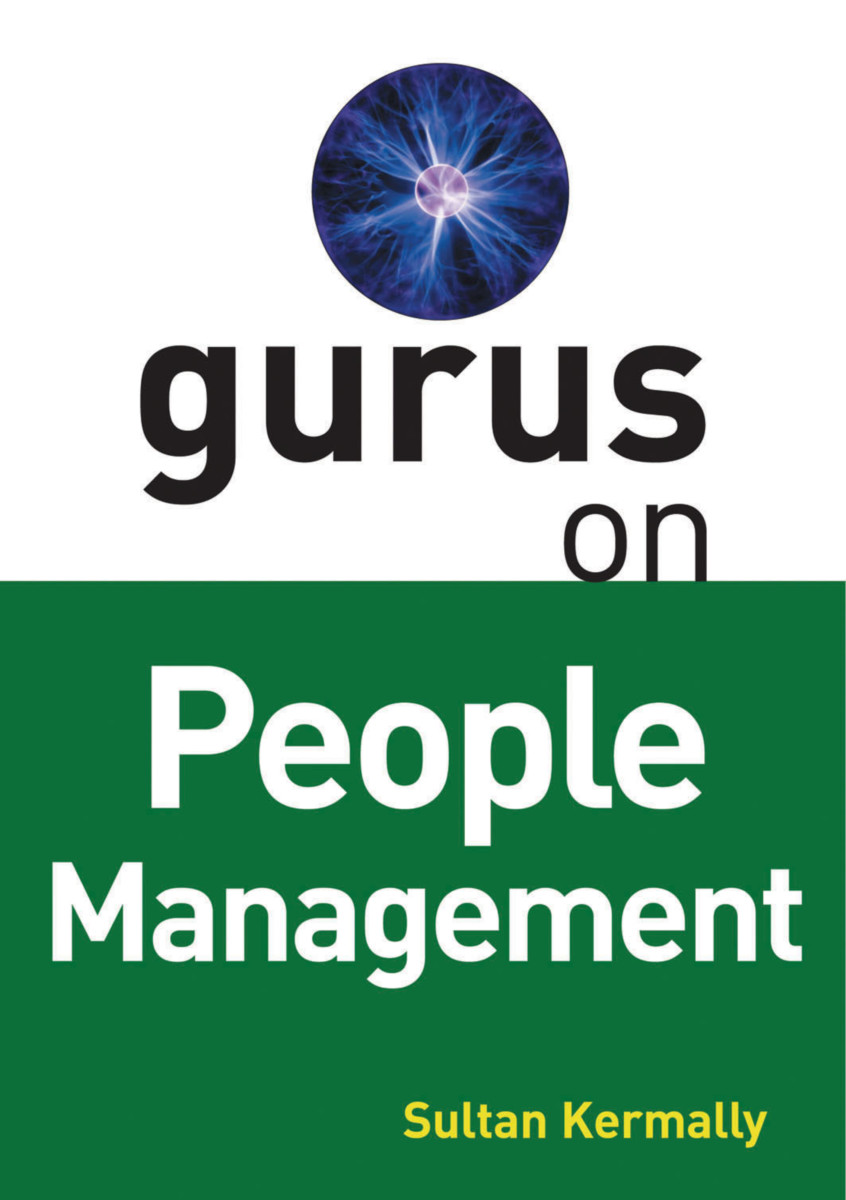BUSINESS BOOKS AND REPORTS
Gurus on People Management
- Publisher
THO - Published
1st March 2005 - ISBN 9781854183200
- Language English
- Pages 172 pp.
- Size 6.25" x 9.25"
A one-stop guide to the world's most important writers on managing people. Summarizes all the key concepts and the contribution of each of the leading thinkers in the field, with pros and cons of each theory.
Managers HAVE to manage people. It is the most difficult and yet the most rewarding function. This book is more than just a summary of the key concepts, it offers valuable insights into their application and value including national and international real-life case studies that reflect some of the key issues of managing people.
ONE The challenges of managing people
People management issues in practice
Continuous improvement
TWO Fredrick Winslow Taylor (1856-1915)
Guru’s profile
Guru’s contribution
Drucker’s views on scientific management
Taylor and managing people
Lessons learnt from Frederick Winslow Taylor
THREE Elton Mayo (1880-1949)
Guru’s profile
Guru’s contribution
What conclusions can one draw from the Hawthorne Researches relating to managing people?
Are the findings of the Hawthorne Experiments relevant today?
Lessons learnt from Elton Mayo
FOUR Abraham Maslow (1908-1970)
Guru’s profile
Guru’s contribution
Maslow’s hierarchy of needs in a nutshell
Physiological needs
Safety needs
Belonging and love needs
Esteem needs
Self-actualisation needs
Criticisms of Maslow’s theory
A word of caution
Lessons learnt from Abraham Maslow
FIVE Douglas McGregor (1906-1964)
Guru’s profile
Guru’s contribution
Theory X approach and its assumptions
Theory Y approach and its assumptions
Criticisms of Theory X and Theory Y
Last thoughts on Theory Y and the Pygmalion Effect
Lessons learnt from Douglas McGregor
SIX Frederick Herzberg (1923-)
Guru’s profile
Guru’s contribution
What are hygiene factors?
What are motivators?
Application of Herzberg’s theory
Criticisms of Herzberg’s theory
Lessons learnt from Frederick Herzberg
SEVEN Victor Vroom (1932-)
Guru’s profile
Guru’s contribution
Vroom’s expectancy theory
Expectancy
Instrumentality
Valence
Criticisms of Vroom’s theory
Expectancy theory and managing people today
Lessons learnt from Victor Vroom
EIGHT Chris Argyris (1923-)
Guru’s profile
Guru’s contribution
Defensive routines
Criticisms of Argyris’s theory
Lessons learnt from Chris Argyris
NINE John Adair (1934-)
Guru’s profile
Guru’s contribution
Developing leadership skills
The Adair Leadership Foundation
Lessons learnt from John Adair
TEN Warren Bennis (1925-)
Guru’s profile
Guru’s contribution
Geeks and geezers
Lessons learnt from Warren Bennis
ELEVEN Rosabeth Moss Kanter (1943-)
Guru’s profile
Guru’s contribution
Empowerment
Motivating your staff
Leadership
Lessons learnt from Rosabeth Moss Kanter
TWELVE Peter Senge (1947-)
Guru’s profile
Guru’s contribution
The learning organisation
Criticisms of Peter Senge’s theory
Lessons learnt from Peter Senge
THIRTEEN Geert Hofstede (1928-)
Guru’s profile
Guru’s contribution
Individualism and collectivism
Masculinity and femininity
Uncertainty avoidance
Criticisms of Hofstede’s theory
Lessons learnt from Geert Hofstede
FOURTEEN Ikujiro Nonaka (1935-)
Guru’s profile
Guru’s contribution
Differences between data, information and knowledge
Making a start – some examples/initiatives
Knowledge is also power – why should employees share this power?
What is an incentive for your organisation to manage knowledge?
Final thought
Professor Nonaka and managing knowledge
Criticisms of the SECI model
Lessons learnt from Ikujiro Nonaka
FIFTEEN Charles Handy (1932-)
Guru’s profile
Guru’s contribution
Leadership
organisational culture
‘Our employees are our greatest asset’
Inside organisations
Implications for managing people
Lessons learnt from Charles Handy
SIXTEEN Peter Drucker (1909-)
Guru’s profile
Guru’s contribution
Druker on managing people – final words
Lessons learnt from Peter Drucker
SEVENTEEN Managing people issues in practice
The Investors in People Standard
Case Studies
EIGHTEEN Great companies to work for: the people management perspective
So what are the key attributes of the ‘winning’ companies/organisations?
Managing people issues at Prêt A Manger
NINETEEN A to Z of managing people
Further reading suggestions
Sultan Kermally
Sultan Kermally is a 'Chartered Marketer' and Fellow of the Chartered Institute of Marketing. He has degrees in Economics, Sociology and Law and Diplomas in Marketing and Finance and Accounting.


